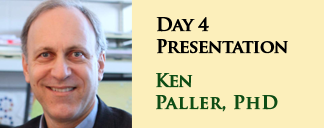Ken Paller, PhD, Professor of Psychology at Northwestern University in Evanston, Illinois.
Research on the cognitive neuroscience of human memory has gathered an empirical basis for the distinction between conscious and nonconscious memory. Recollecting an autobiographic episode can be contrasted with nonconscious memory phenomena such as certain types of skilled performance, perceptual implicit memory, intuitive decision-making, and implicit social bias. This conscious/nonconscious divide can also be scrutinized in the context of contemplative orientations. On another note, these various types of learning generally take hold gradually and require practice, which need not be intentional, or conscious. Recent evidence suggests that memory reactivation during sleep helps maintain enduring long-term memory storage. To investigate brain mechanisms of memory processing during sleep, we have used subtle sensory stimulation to modify neural activity while avoiding arousal from sleep. Sounds associated with learning presented again during sleep promote memory reactivation, and can systematically enhance learning of locations, skills/habits, and so on. Investigations of the relevant physiological mechanisms are helping to elucidate the hidden but critical contributions of sleep to our waking abilities. This method of hacking into sleep bears some similarities to dream yoga and opens up new opportunities for exploring sleep cognition.
360 Video Login required
